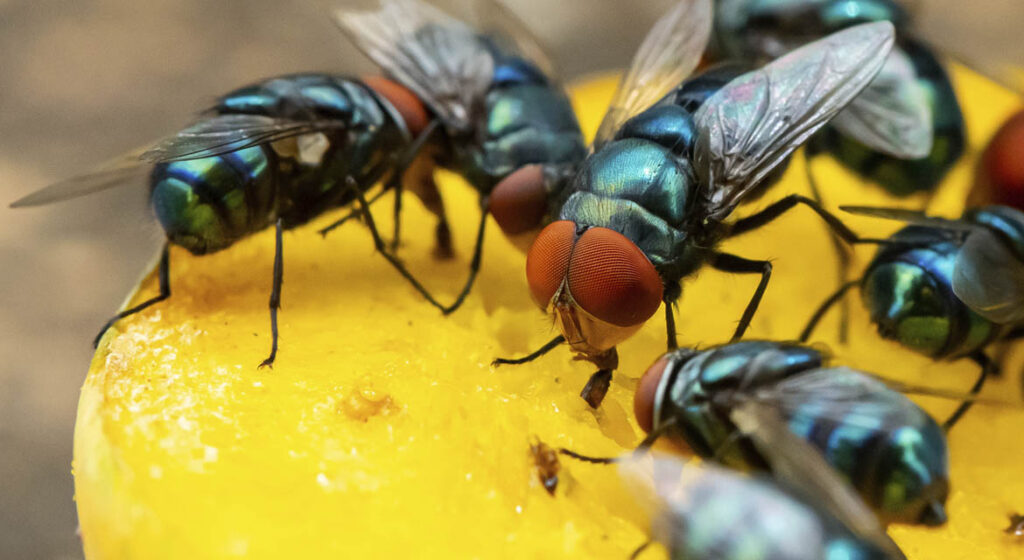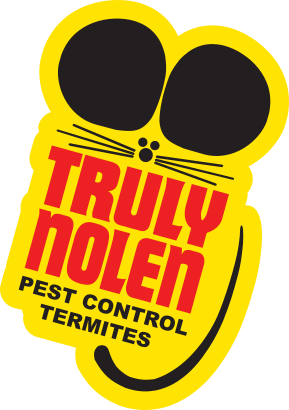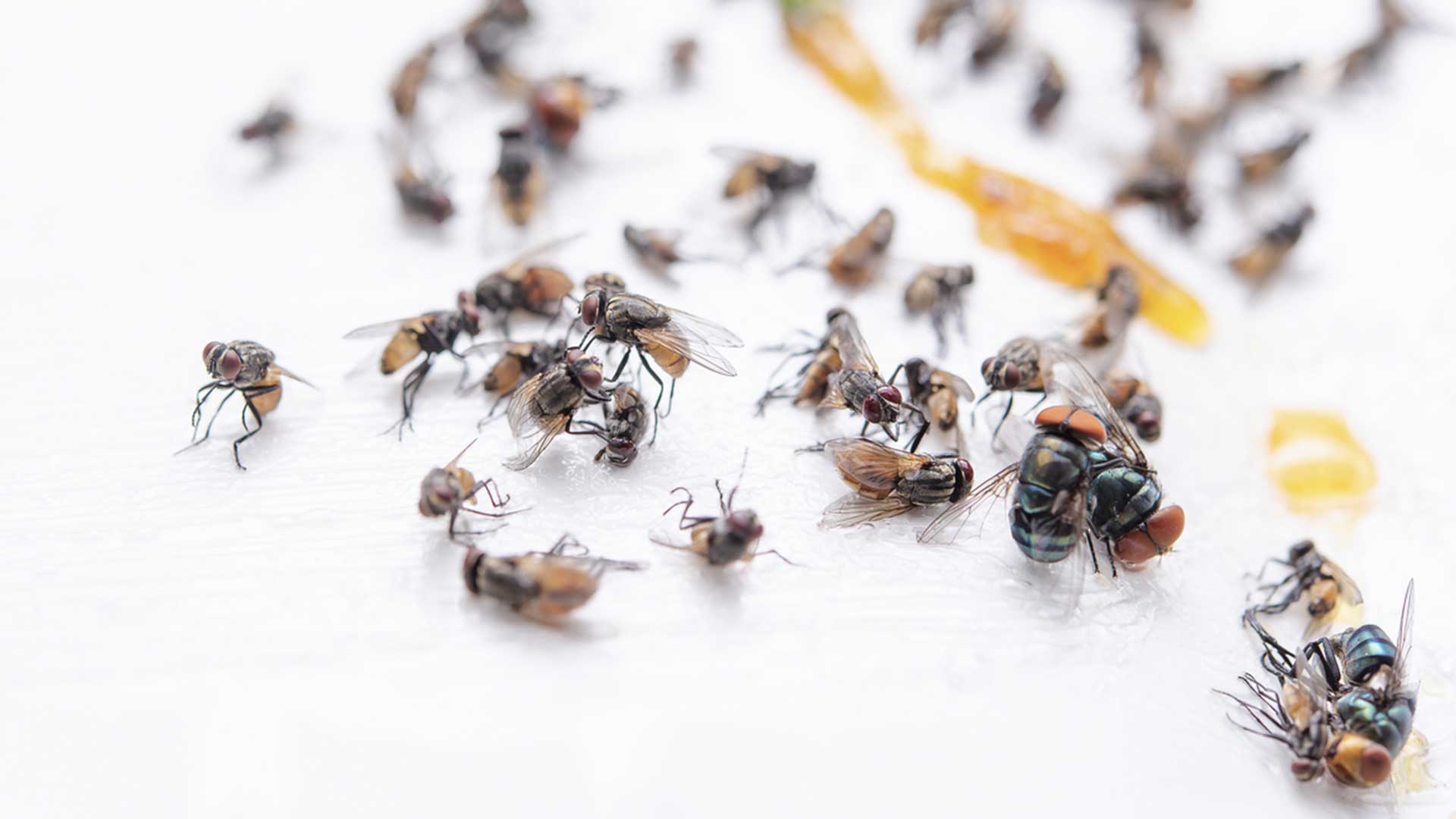
How to Get Rid of a Fly Infestation
Flies can become a nuisance when their populations grow uncontrollably, and being able to identify the signs of a fly infestation is crucial for effective management. Here are three key ways to determine if you have a fly infestation:
- Increased sightings of flies in your home or property, especially around the kitchen or garbage areas, may indicate a fly infestation.
- The presence of fly breeding sites, such as rotting organic matter or pet waste, along with the presence of maggots, is a clear sign of a fly infestation.
- Dark specks of fly feces (fly spots) and signs of damage caused by flies, such as chewing or scraping on surfaces, can also indicate a fly infestation.
How Do Large-Scale Fly Infestations Start?
Flies are one of the most common pests found in homes, and they can quickly become a nuisance. But have you ever wondered how fly infestations start? It may surprise you to learn that large-scale fly infestations often begin with just a few flies.
Flies are attracted to decaying organic matter, such as garbage and animal waste. When there is an ample supply of this type of material, flies will lay their eggs on it. The eggs hatch into maggots, which feed on the decaying matter until they mature into adult flies.
Poor sanitation practices can also lead to fly infestations. If garbage is not disposed of properly or if pet waste is left unattended for too long, it can attract flies and provide them with a breeding ground.
Warm weather and humidity can increase the likelihood of fly infestations. Flies thrive in warm temperatures and moist environments, so be extra vigilant during the summer months.
Fly infestations can quickly spread if not addressed promptly. Once a few flies have laid their eggs on decaying matter or found a suitable breeding ground, they can multiply rapidly. Within days or weeks, what started as a small number of flies can turn into a full-blown infestation.
Preventing Fly Infestations
Once a fly infestation occurs, it can be difficult to get rid of. Luckily, there are a few steps you can take to prevent an infestation from happening in the first place.
Store Pet Food in Airtight Containers
Pet food can be a major source of attraction for flies, especially during the hot summer months. To prevent an infestation, store pet food in airtight containers. This will not only keep the food fresh but also make it less accessible to flies. Make sure that you clean your pet’s feeding area regularly to remove any leftover food or spills.
Dispose of Food Scraps
Food scraps left out in the open can attract flies and other pests. To prevent this from happening, dispose of food scraps regularly. Use sealed containers for storing garbage and empty them frequently. Avoid leaving any food waste lying around your home or backyard.
Keep All Food Covered
Keep all your food covered when not in use. This includes fruits, vegetables, meat, cheese, bread, and any other perishable items that may be sitting on your counter or table. You can use plastic wrap or aluminum foil to cover your food or invest in some reusable silicone covers.
Clean Up Messes
Clean up spills and crumbs immediately after meals using soap and water, wash all dishes promptly after use, and keep your kitchen counters clean by wiping them down with a disinfectant spray regularly. Additionally, remove standing water, keep trash cans covered, and clean up yard debris.

Truly Nolen GUARANTEE
If you’re not completely satisfied, you’ll get a full refund on your most recent service with our 100% money back guarantee.
Professional Pest Control vs DIY Treatments for Flies
Hiring a professional exterminator has several advantages. First, they have access to stronger and more effective treatments that may not be available over the counter. These treatments are often more potent than those found at your local hardware or grocery store, meaning they can provide faster and longer-lasting results.
Moreover, pest control specialists can identify the root cause of the infestation and address it accordingly. This means they can determine where the flies are coming from, what is attracting them to your home, and how to prevent them from returning in the future. By addressing the underlying issue rather than just treating the symptoms, you can ensure that your fly problem is fully eradicated.
Another advantage of hiring a professional is that their services often come with a guarantee or warranty. This means that if the flies return within a certain period after treatment, they will return to re-treat at no additional cost to you.
However, one potential downside of hiring a professional exterminator is cost. Their services can be more expensive upfront compared to DIY treatments. However, as mentioned earlier, investing in professional services could save money in the long run by preventing further infestations.
While DIY treatments may seem like an affordable option for eliminating flies from your home, they may only provide temporary relief and not fully eradicate the problem. Over-the-counter sprays and traps may kill some flies but do not address the underlying issues that are attracting them to your home.
DIY Treatments for Fly Infestations
If you’re dealing with a house fly infestation, there are several home remedies that you can try before resorting to chemical sprays or pest control services.
Apple Cider Vinegar Traps
Apple cider vinegar traps are an effective way to catch and kill flies. To make one, fill a jar or bowl with apple cider vinegar mixed with dish soap. The dish soap breaks the surface tension of the vinegar so that when flies land on it, they sink into the liquid and drown.
Cloves and Essential Oils
Cloves have a strong, distinct smell that flies find unpleasant. You can place cloves in a small sachet or simply scatter them around your home to deter flies. Another option is to use essential oils like basil, peppermint, lavender, or eucalyptus. These oils have natural insect-repelling properties and can be used in diffusers or mixed with water to create a spray.
Homemade Fly Traps
One easy way to make a DIY fly trap is by using plastic wrap and sugar water. First, mix sugar with hot water until it dissolves completely. Then, let the mixture cool down and pour it into a shallow bowl. Cover the bowl with plastic wrap and secure it with a rubber band. Poke small holes in the plastic wrap so that flies can enter but cannot escape.
Venus Flytraps
Venus flytraps are carnivorous plants that eat insects like flies as part of their diet. They capture prey by producing nectar which attracts insects towards their leaves before snapping shut on them when triggered by tiny hairs on the surface. However, Venus flytraps require specific care and conditions to thrive such as high humidity, bright light, and distilled water.
Insecticides and Repellents for Fly Control
Insecticides and repellents are effective measures for fly control. These products come in different forms such as spray bottles, liquids, and powders.
Pyrethrin-Based Insecticides
Pyrethrin-based insecticides are one of the most common types of insecticides used for fly control. They are derived from chrysanthemum flowers and can be used to kill flies, fleas, and roaches. They work by attacking the nervous system of insects, causing paralysis and death.
When using pyrethrin-based insecticides, make sure to follow the safety instructions on the label carefully. Wear gloves and a mask when applying these products to avoid harm to yourself or others.
Natural Repellents
Citronella is a plant-based oil that has a strong scent which repels flies. It is commonly used in candles or you can mix it with water and spray it around your home. Eucalyptus oil contains compounds that irritate insects’ respiratory systems, making it difficult for them to breathe. Vinegar is also an effective natural repellent. Its strong smell deters flies from entering your home or landing on surfaces where it has been applied.
Other Options
Diatomaceous earth is a powder made from the fossilized remains of diatoms. It works by dehydrating insects, causing them to die. Boric acid is another type of insecticide that can be used for fly control. It attacks the nervous system of insects, causing paralysis and death.
When using any type of insecticide or repellent for fly control, read the label carefully and follow the instructions provided. You should also take precautions to ensure that these products are not harmful to yourself or others in your home.
Effective Methods for Killing Flies
If you can’t keep flies out of your home using preventative measures, there are several effective methods for getting rid of them quickly and easily.
Swatting Flies with a Flyswatter
Swatting flies with a flyswatter is one of the oldest and most effective methods for killing them. It’s quick, easy, and doesn’t require any chemicals. All you need is a flyswatter and some patience.
To swat flies effectively, wait until they land on a surface such as a wall or window. Then, carefully approach the fly with your flyswatter and strike it quickly but firmly. Be sure to aim accurately to avoid missing the fly or damaging your surroundings.
Light Traps for Fruit Flies
Fruit flies are a common problem in many homes, especially during the summer months when ripe fruit is abundant. To get rid of fruit flies, try using a light trap that emits UV light. These types of traps work by attracting the flies with the light and then trapping them on a sticky surface. You can purchase them at most hardware stores or online retailers.
Sucking Up Flies with a Vacuum Cleaner
Attach the hose extension to your vacuum cleaner and use it to suck up any flying insects that cross its path. This method works particularly well for catching multiple flies at once since they tend to cluster together in certain areas. Make sure to empty your vacuum bag or canister frequently so that it doesn’t become clogged with dead insects.
Sticky Fly Traps
To use a sticky fly trap, hang it up in an area where flies are present. The trap will attract the flies with its sweet scent, and once they land on it, they’ll become stuck and unable to escape. Sticky fly traps don’t require any maintenance or cleaning other than replacing them when they become full of dead insects. They’re also safe to use around children and pets since they don’t contain any harmful chemicals.
Electric Fly Zappers
Electric fly zappers use UV light to attract and kill flies. When a fly lands on the device, it’s electrocuted by a high-voltage grid inside the zapper. While this method is effective at killing flies quickly, it can be noisy and may not be suitable for all households.
If you decide to use an electric fly zapper, make sure to place it away from areas where people sleep or spend a lot of time since the noise can be disruptive. You’ll also need to clean out the device regularly since dead insects can accumulate inside over time.
Professional Treatments for Fly Infestations
Sometimes calling in the professionals is necessary. Here’s what you need to know about professional treatments for fly infestations.
Pest Control Companies Offer Various Treatments for Fly Problems
Pest control companies like Truly Nolen have a range of treatments available to eliminate fly infestations. The most common methods include chemical sprays and baits that target adult flies and their larvae. These treatments are effective in killing flies quickly and preventing them from reproducing.
A Truly Nolen professional can identify the underlying cause of the fly problem and address it accordingly. For example, if the flies are attracted to pet waste or decaying food, they may recommend cleaning up these areas and sealing any entry points where flies can enter your home.
Chemical Sprays and Baits Are Commonly Used in Professional Treatments
Chemical sprays and baits are commonly used by pest control companies to eradicate fly infestations. These products contain chemicals that are toxic to flies but safe for humans when used properly.
Sprays can be applied directly on surfaces where flies land or rest, such as walls, ceilings, and countertops. Baits come in different forms like gels or granules which attract flies with their sweet scent then kill them once ingested.
Chemical sprays should only be applied by trained professionals who know how to use them safely. Overuse or misuse of these products can lead to health hazards for humans or pets living in the treated area.
Professional Treatments Can Address Underlying Issues That Attract Flies
One advantage of hiring a pest control company is their ability to identify underlying issues that attract flies to your home. For example, if you have a flea problem in your house, this can be a significant attractant for flies. A Truly Nolen professional can help you address the flea problem and eliminate the source of attraction for flies.
Another common issue that attracts flies is moisture buildup in your home. Flies thrive in damp environments, so if you have a leaky pipe or standing water, this could be contributing to the fly problem. A Truly Nolen professional can identify these issues and help you fix them to prevent future infestations.
When to Call a Pro About Your Fly Problem
If you’ve tried DIY methods and still have a persistent fly problem, it’s time to call in the pros. If you’re dealing with an infestation that is too large or too dangerous to handle on your own, such as a swarm of biting flies or flies carrying diseases like E. coli or Salmonella, it’s best to leave it to the experts.
If you’re unsure about how to deal with your fly problem or are concerned about the safety of using chemical sprays or baits yourself, it’s always better to err on the side of caution and call Truly Nolen.
Say Goodbye to Pesky Flies in Your Home
Flies can be a real nuisance, but don’t worry — there are plenty of ways to prevent an infestation or get rid of one when it occurs. Whether you choose a professional pest control service like Truly Nolen or opt for DIY treatments, take action as soon as possible before the problem gets worse.

$50 Off Year Round Pest Control
Truly Nolen is a family-owned company with 85 years of experience providing the best pest control. If you’re not completely satisfied, you’ll get a full refund on your most recent service with our 100% money back guarantee.
Frequently Asked Questions
Why are flies attracted to my home?
Flies are attracted to homes because they are seeking food sources. They are particularly drawn to decaying organic matter, such as garbage, rotting fruits, or pet waste. Additionally, flies are attracted to warmth, moisture, and areas with standing water.
Are flies harmful or dangerous to humans?
While most common flies are not directly harmful, they can pose health risks. Flies can spread diseases by landing on contaminated surfaces and then on food or utensils. Some diseases associated with flies include food poisoning, diarrhea, and eye infections. Learn More!
How do I prevent flies from entering my home?
To prevent flies from entering your home, take these measures: keep doors and windows screened, seal cracks or gaps in doors and windows, dispose of garbage properly and frequently, clean up pet waste promptly, store food in sealed containers, and maintain good hygiene in the kitchen and dining areas.
How can I get rid of flies in my home?
To get rid of flies, you can use methods such as fly traps, fly swatters, or fly papers to catch and eliminate individual flies. Additionally, addressing the root cause by eliminating breeding sources, such as proper waste management and cleaning up organic matter, can help reduce fly populations. If the infestation persists, professional pest control services can provide effective treatments. Learn more about flies
Why do flies seem to appear suddenly in large numbers?
Flies can reproduce quickly, especially in warm weather or if there are ample food and breeding sources available. Large numbers of flies can appear suddenly if there is a nearby breeding site, such as decaying organic matter or standing water, attracting and supporting a significant population of flies.

